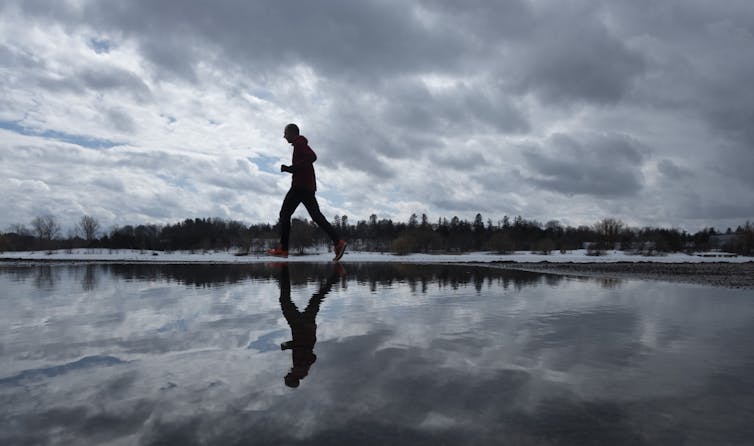https://mailchi.mp/724f40194405/breaking-news-from-cdn-healthcare-technology-may-9-468340?e=579fec9601
Email not displaying correctly? Click here to view it in your browser.
|
| March 26, 2020 - Volume 17, Number 7 Welcome to The CHT e-Messenger: A summary of key I.T.-related news from Canadian Healthcare Technology. COVID-19 New solution for rapidly screening, managing patients  TORONTO – InputHealth, a Canadian healthcare software company known for their Collaborative Health Record (CHR) platform, has signed a contract to supply the Ontario Health West region with a newly devised solution for rapidly screening, triaging and treating patients according to the urgency of their care. More TORONTO – InputHealth, a Canadian healthcare software company known for their Collaborative Health Record (CHR) platform, has signed a contract to supply the Ontario Health West region with a newly devised solution for rapidly screening, triaging and treating patients according to the urgency of their care. More Innovation Orion Health offers IT solution for current pandemic   TORONTO – A computerized system for remote patient management, developed by Orion Health, is now being used in New Zealand, France and elsewhere to monitor patients who have tested positive for COVID-19, enabling them to remain in their own homes. The solution could be quickly adapted in Canada, too, and extended to homes to help monitor patients in this country, the company said. More TORONTO – A computerized system for remote patient management, developed by Orion Health, is now being used in New Zealand, France and elsewhere to monitor patients who have tested positive for COVID-19, enabling them to remain in their own homes. The solution could be quickly adapted in Canada, too, and extended to homes to help monitor patients in this country, the company said. More Telehealth Alberta increases doctor’s fees for virtual visits  EDMONTON – The Alberta government has approved new, temporary billing codes to compensate doctors for providing virtual care. The new health service codes allow physicians to be paid at the same rate as if the medical services were provided face-to-face. Previously, Alberta doctors were paid only $20 for a virtual visit, compared with $38 for an in-person visit. More EDMONTON – The Alberta government has approved new, temporary billing codes to compensate doctors for providing virtual care. The new health service codes allow physicians to be paid at the same rate as if the medical services were provided face-to-face. Previously, Alberta doctors were paid only $20 for a virtual visit, compared with $38 for an in-person visit. More Education & training CAE Healthcare and iRIS share coronavirus scenario  MONTREAL – CAE Healthcare and UK-based iRIS Health Solutions announced that CAE’s COVID-19 Simulated Clinical Experience (SCE) for healthcare is now available and free of charge to the global iRIS community. iRIS and the SCE will shortly be made available free of charge to the full membership of the Society for Simulation in Healthcare (SSH), which has 4,200 members in 60 countries, to aid collaboration and sharing between members at this time. More MONTREAL – CAE Healthcare and UK-based iRIS Health Solutions announced that CAE’s COVID-19 Simulated Clinical Experience (SCE) for healthcare is now available and free of charge to the global iRIS community. iRIS and the SCE will shortly be made available free of charge to the full membership of the Society for Simulation in Healthcare (SSH), which has 4,200 members in 60 countries, to aid collaboration and sharing between members at this time. More Research & development AWS announces $20 million for COVID-19 diagnostics  WASHINGTON, DC – Amazon Web Services has launched the AWS Diagnostic Development Initiative – a program to support customers who are working to bring better, more accurate, diagnostics solutions to market faster and promote better collaboration across organizations that are working on similar problems. More WASHINGTON, DC – Amazon Web Services has launched the AWS Diagnostic Development Initiative – a program to support customers who are working to bring better, more accurate, diagnostics solutions to market faster and promote better collaboration across organizations that are working on similar problems. More Telehealth Sask now covering cost of virtual visits with doctors  REGINA – With the growing concern around COVID-19, Saskatchewan is taking steps to enhance access to healthcare by providing support for physicians to offer virtual appointments to patients. The new virtual services, which will be supported through a new payment code for physicians, will enable patients to connect with physicians by telephone. More REGINA – With the growing concern around COVID-19, Saskatchewan is taking steps to enhance access to healthcare by providing support for physicians to offer virtual appointments to patients. The new virtual services, which will be supported through a new payment code for physicians, will enable patients to connect with physicians by telephone. More Innovation Ottawa company readies a quick COVID-19 test  OTTAWA – Spartan Bioscience is weeks away from producing a mobile, hand-held testing kit that can tell people quickly if they have COVID-19, according to company CEO Paul Lem. The biotechnology company is now working with the Canadian Government to help combat the spread of novel coronavirus by developing the new testing tool. More OTTAWA – Spartan Bioscience is weeks away from producing a mobile, hand-held testing kit that can tell people quickly if they have COVID-19, according to company CEO Paul Lem. The biotechnology company is now working with the Canadian Government to help combat the spread of novel coronavirus by developing the new testing tool. More Got a story idea? Contact the Editor at jerryz@canhealth.com or phone: 905-709-2330. | |
You are receiving this email because you opted in at our website, have subscribed to Canadian Healthcare Technology magazine, eMessenger newsletter or CHT White Papers.
| |
















